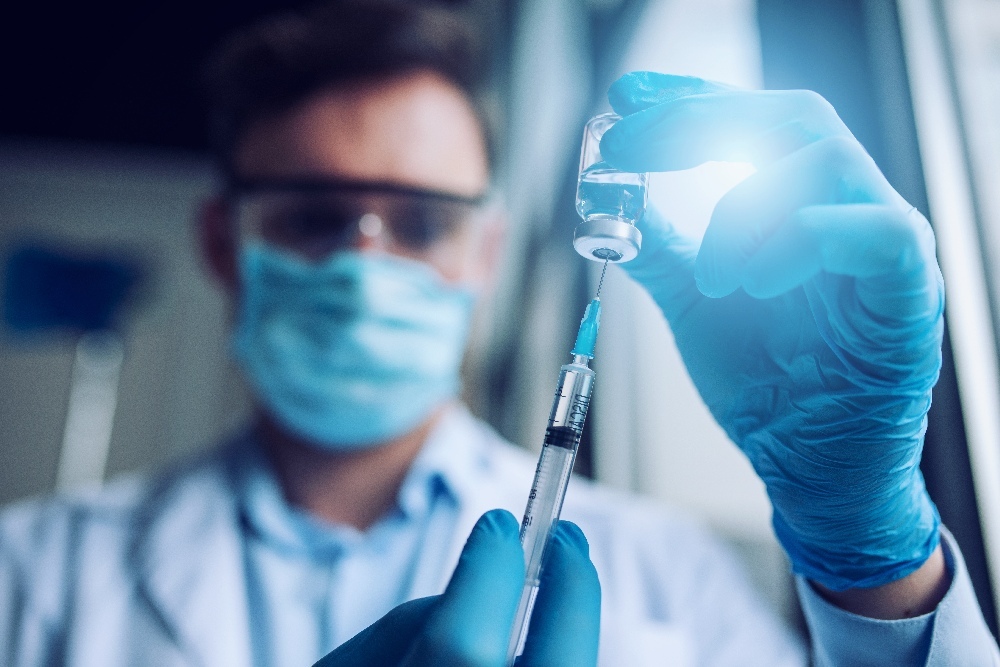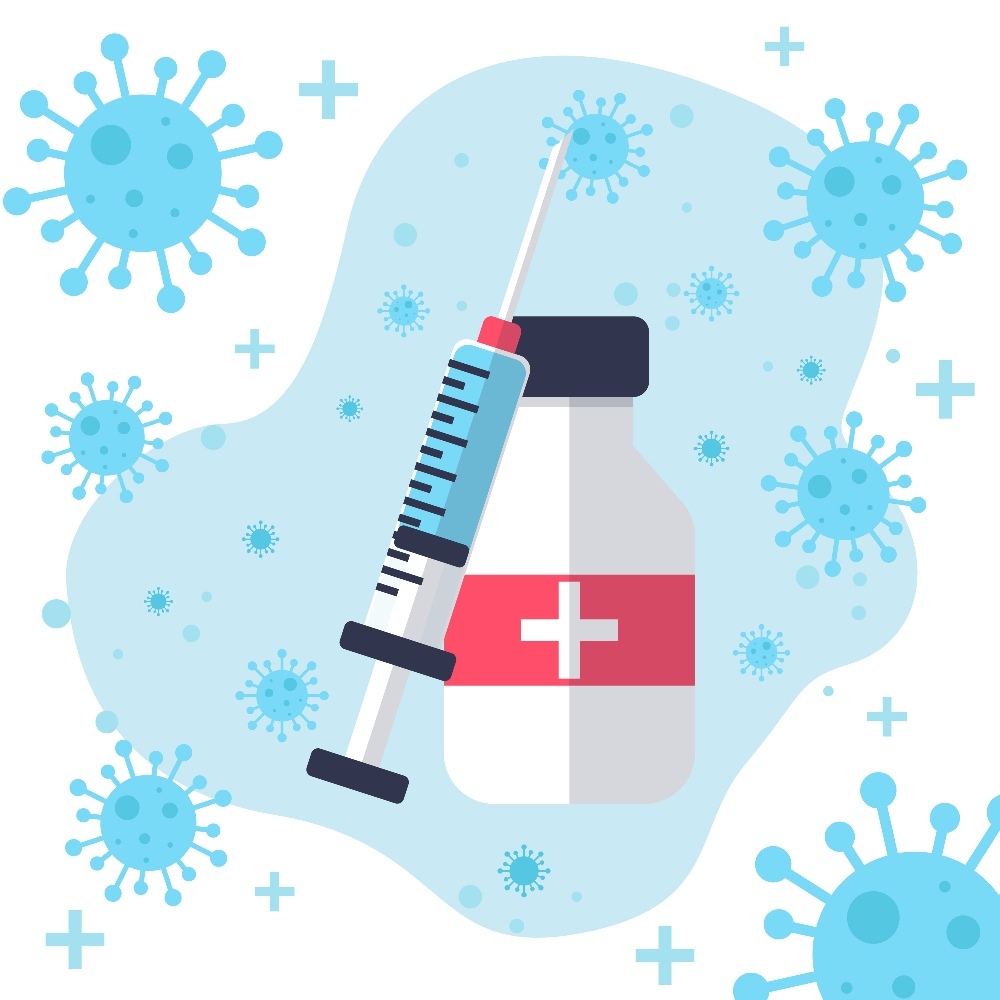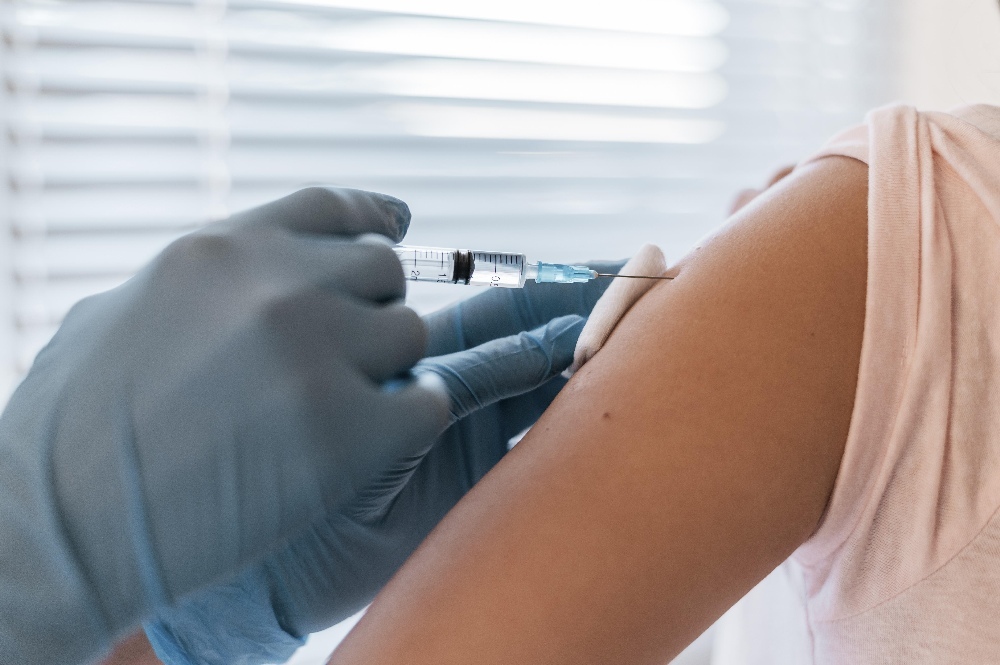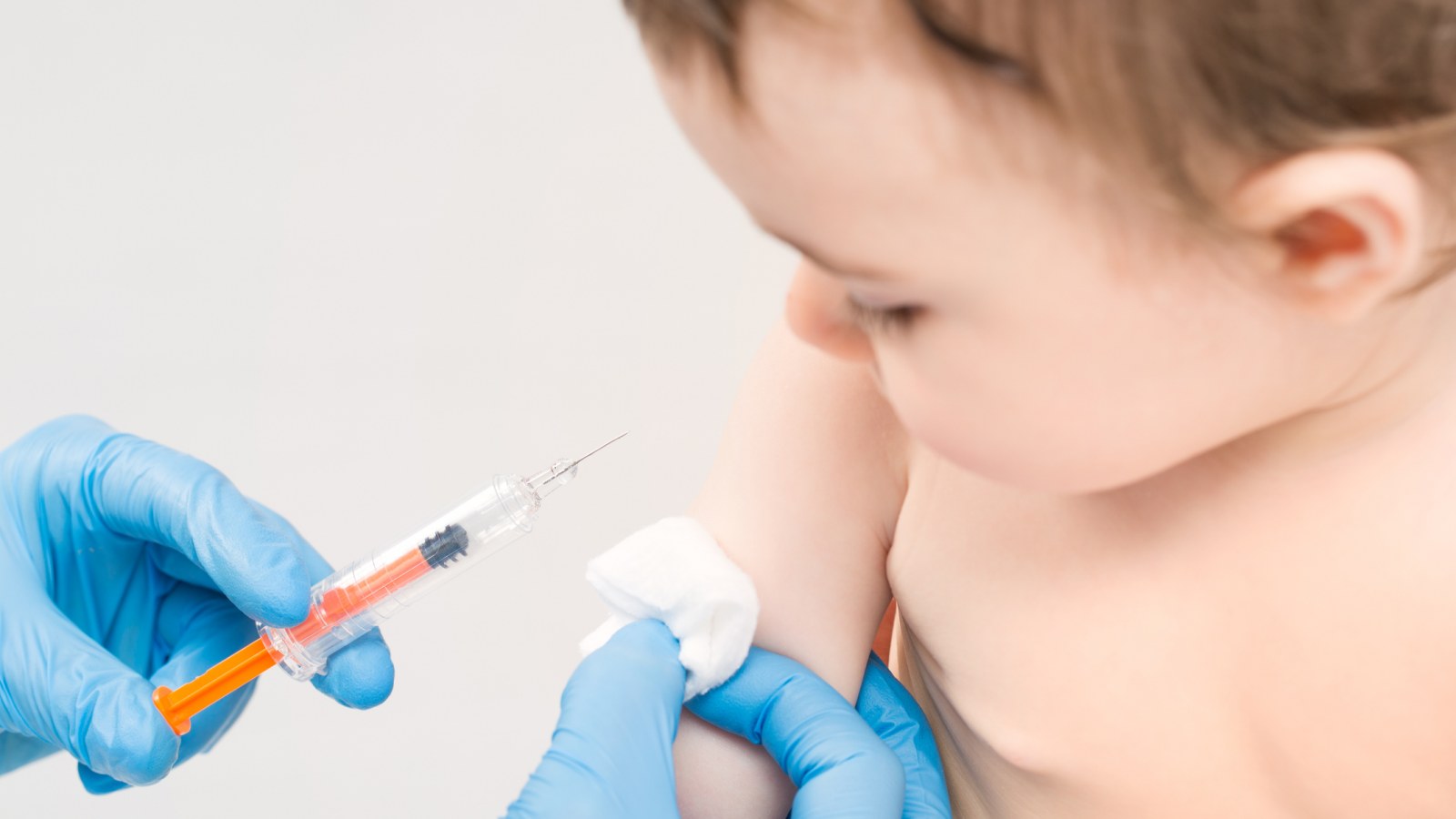A vaccination is a way to “teach” the body’s immune system to identify and combat the infection-causing pathogens that weren’t originally recognizable, and hence, could create serious health issues. But how do they actually protect us? Read on to know how vaccines work.
How Vaccines Work In A Nutshell
We all know that the body’s immune system fights against the pathogens that cause infection. The immune system works efficiently by either keeping microorganisms out or tracking them down and getting rid of them. However, there are some pathogens that can outperform the immune system, leading to serious health issues.
This happens because the immune system could not recognize the particular pathogen. So, it is extremely important to teach the immune system to identify and combat them. How vaccines work is that vaccinations become our primary shield against some really serious diseases. Vaccines have allowed the world to control diseases that used to be huge threats to humanity. Such diseases include –
- Measles
- Polio
- Tetanus
- Whooping cough
Massive vaccination coverage is extremely important, as these not only save the individuals but also society as a whole. When enough people are vaccinated it leads to ‘herd immunity‘ which helps to prevent the spread of infection to unvaccinated people as well. Widespread vaccinations decrease the probability of a susceptible person getting in contact with someone who has a particular disease.

A Deeper Look At How Vaccines Work
The immune system is made of various types of cells that defend against and remove harmful pathogens. However, it is important that the cells first identify the pathogen as a threat to the body. How vaccines work is that it stimulates antibody production in the body that fights against pathogens. It also promotes immune cells to recall such antigens that cause infection. This ensures a quick response to the disease in the future.
Vaccines expose you to a safe version of a disease. This can take the form of –
- A protein from the makeup of a pathogen
- An inactivated form of a pathogen
- A toxoid having toxin made by a pathogen
- A weakened pathogen
When the body starts reacting to the vaccine, it creates an adaptive immune response. This process helps the body in fighting off the actual infection.
What Vaccines Are Made Of
Wondering what vaccines are made of? Most vaccines have two parts. The first is the antigen, which is the non-harmful part of the disease your body must recognize. The second is the adjuvant, which sends a danger signal to your body. It also promotes your immune system to act more strongly against the antigen which is causing the infection. This process helps you in developing immunity.
There mainly are four types of vaccines –
- Killed (inactivated) vaccines are formulated using a virus or bacterium that is not living.
- Live virus vaccines are made using a weakened version of a virus or bacterium.
- Toxoid vaccines are formulated using a harmful chemical that is made by viruses or bacteria. These vaccines do not make you immune to the germs, but they strengthen your defense mechanism against harmful effects from the toxin of the germs. The tetanus shot is a type of toxoid vaccine.
- Polysaccharide, subunit, conjugate and recombinant vaccines are made using a structural component from a virus or bacterium which is capable enough to train your immune system to attack this part of the germ.
The other ingredients used in the vaccines are to keep them safe during production, storage, and transportation.
These ingredients sometimes also increase their efficiency after administration. However, these additives are a very small portion of the vaccine.
The additives include –
- Suspending fluid – Saline, sterile water, or other fluids help in keeping the vaccine safe during production, storage, and use.
- Adjuvants or enhancers – These help in increasing the efficiency of the vaccine after administration. Aluminum gels or salts are some of the examples of such additives.
- Preservatives and stabilizers – There are plenty of vaccines that are made years before being used. Such additives help in preventing the virus, bacterium, or protein pieces from breaking down and becoming ineffective. Monosodium glutamate (MSG) and thimerosal are a few examples of such additives.
- Antibiotics – Sometimes, researchers have to include small amounts of a bacteria-fighting drug in vaccines to nullify the possibility of germ growth during production and storage.
It is worth mentioning that all these ingredients are studied rigorously and thoroughly for safety and efficiency.
Vaccination Schedule
Vaccines are the most important factor for the well-being of a child. Every country has a different vaccine schedule to combat the diseases which are most common in the country. The schedule may differ depending upon the spread of any particular disease in the region or the person being more susceptible to a certain disease. India has two vaccination schedules, the IAP and the NIS schedules. There are minor differences between the two.
Are Vaccines Safe?
Vaccines are completely safe. They go through multiple rounds of testing, study, examination and research before finally being administered to the general public. This is the most important thing to understand about how vaccines work. Extensive research has proved that vaccines are absolutely safe and extreme side-effects are a rare occurrence. Moreover, common side effects are mostly mild.
If you choose not to get vaccinated, you can suffer really severe consequences that surely would be way worse than the potential side effects. In some cases avoiding the vaccination may lead to physical disability or even death.

Benefits Of Vaccination
Here are some of the factors you must consider if you have any second thoughts about getting vaccinated-
- Getting vaccinated helps in preventing dangerous diseases that can potentially kill or sicken people.
- Researchers do thorough research and testing of every vaccine before presenting it before the Drug Administration bodies of any country. The Drug Administration bodies thoroughly check the research data and then take the final call on approving or rejecting the vaccine.
- Vaccines not only protect you but also the people around you, especially those who are not healthy enough to get them.
Note –
- Vaccines produce positive results in most cases. However, you could still get sick even if you are vaccinated.
- Vaccines are not healthy for some people who have a weakened immune system. Some people have to be under medical supervision for the safe administration of a vaccine; read all about vaccine precautions to know more.
Moreover, you should get a doctor’s advice before getting any vaccine.
Vaccination Side-Effects
Most of the side effects of a vaccine are mild. In most cases, people do not have any side effects at all. The side-effects, some rarer than others, may include –
- Mild pain or swelling at the injection site
- Disturbance in sleeping pattern
- Joint pain near the injection site
- Seizures
- Low to high-grade fever
- Memory loss
- Muscle paralysis on a particular area of the body
- Feel of weakened muscles
- Hearing loss
- Fatigue
- Vision loss
Some risk factors may increase the possibility of occurrence of side effects from a vaccination. Such factors include –
- A weak or suppressed immune system
- Being sick at the time of receiving a vaccination
- Having a family history of vaccine reactions
Serious life-threatening side-effects or reactions from vaccines are very rare. No vaccination always poses a bigger risk than these side effects.
How Vaccines Work – Vaccine Effectiveness
Vaccines are very powerful and keep the receiver safe, but no vaccine is 100 percent effective. Flu vaccines lower the risk of infection by 40-60%. It may sound to be very low, but the flu vaccine is designed by scientists to match the strain that is expected to be most abundant in the coming flu season.
Vaccines like measles show 98% effectiveness when used in the recommended amount. As per the World Health Organisation (WHO), most childhood vaccines are 85- 95% effective, if administered properly.
Vaccination In Children
Vaccines work as an immune system builder in children. Vaccines protect children from a range of potentially deadly diseases. Infants inherit a natural immune system from their mothers during their early months. As soon as it begins to wane, vaccines help them build their own immune system and fight against ailments. In fact, vaccines begin to protect our kids immediately after birth.
Vaccines also protect the children from getting infected by the diseases which are communicated to them by their friends, playmates, family members, or classmates. This is the reason behind some vaccines requiring a booster or a follow-up dose when the children reach their school age. This extra dose helps in reinforcing the child’s immune system against certain ailments.
Every country has a national vaccination schedule to protect children from the most common diseases found in the region. There are plenty of additional vaccines available for children. However, babies get these vaccines on the doctor’s recommendation.
List Of Vaccines
A major number of vaccines are administered during the early childhood days, but there are some important vaccines and their booster shots which you may keep getting throughout your life.
List of vaccines administered during infancy and early childhood
Before beginning with elementary school, your child should have received –
- Bacillus Calmette–Guérin vaccine (BCG)
- Hepatitis B vaccine
- Pneumococcal conjugate vaccine (PCV)
- DTaP (diphtheria, tetanus, and pertussis) vaccine
- Measles, Mumps, and Rubella (MMR) vaccine
- Haemophilus influenzae type B vaccine (Hib)
- Rotavirus (RV) vaccine
- Inactivated poliovirus vaccine (IPV)
- Influenza vaccine (yearly after 6 months of age)
- Varicella (chickenpox) vaccine
List of vaccines given during mid-childhood
Apart from the most common childhood vaccines, your doctor may recommend the following vaccinations for your child –
- Hepatitis A vaccine
- Varicella (chickenpox) vaccine
- Yearly influenza vaccine
List of vaccines administered during young adulthood
As the child grows further, other vaccines may be recommended, such as –
- Human papillomavirus (HPV) vaccine
- Yearly influenza vaccine
- Tdap booster
- Meningococcal vaccine
Vaccines administered during adulthood
Adults should receive:
- Annual flu shots
- Tetanus boosters
- Pneumonia vaccines
List Of Other Vaccines
Your doctor may also suggest you some other vaccinations or boosters depending upon your health history, sexual orientation, personal hobbies and other factors. These possible vaccines include –
- Meningococcal vaccines – This vaccine comes in two variants, and the doctor decides which one is right for you. It cures bacterial meningococcal disease, which is a bacterial illness that causes inflammation in the protective layer of tissues around the brain and spinal cord of the person. This infection spreads through sharing respiratory and salivary secretions from one person to another through kissing or coughing.
- Meningococcal serogroup B vaccine – It protects against the serogroup B type.
- Meningococcal conjugate – This vaccine shields against serogroup types A, C, W, and Y.
- Yellow fever vaccine – Yellow fever is a very serious and deadly viral disease, which causes flu-like symptoms. Mosquitos are the spreaders of this disease. Anyone above 9 months must take this vaccine if they plan to travel or live in the areas around the world where yellow fever is present.
- Hepatitis – Viral hepatitis is also a very threatening infectious disease. Children and infants must take vaccination against hepatitis A and B before traveling abroad.
Vaccination Cost
Governments spend crores of rupees on vaccination camps every year to ensure that every child receives vaccines. Still, many kids miss them due to plenty of reasons, like lack of awareness, misinformation, and more.
Vaccination During Pregnancy
Vaccinations during pregnancy not only protect the mother but also build the immunity of their child. During the nine months of pregnancy, vaccines play a vital role in keeping some very dangerous diseases at bay.
Women must receive an MMR vaccine before pregnancy. This helps the woman and the baby in avoiding many diseases, in particular rubella, which can lead to serious complications like miscarriage and birth defects.
Pregnant women should also receive vaccines like whooping cough (Tdap) vaccine, Varicella zoster vaccine, and influenza vaccine. After the birth of the baby, women can receive vaccines even while breastfeeding.
Post-pregnancy vaccinations can also help you in protecting your infant. When you are immune to a virus or bacterium, you will be less prone to sharing it with your child.

Vaccination Statistics
Extensive vaccination drives by governments across the world have helped the world in containing many diseases from spreading extensively. Mentioned below are some of the statistics which clearly show the efforts and success of these drives –
Polio cases have gone down over 99 percent since 1988, as per the WHO. Currently, polio is only routinely found in three countries – Pakistan, Afghanistan, and Nigeria.
WHO also predicts that vaccines save at least 2 to 3 million lives around the world every year. It also believes that with better vaccine access, the number could increase by another million lives. Between 2000 and 2016, the rate of deaths due to measles has gone down by 86 percent worldwide.
Why Do People Avoid Vaccination?
Over the past few years, there has been disbelief that vaccines are not safe and can cause side effects. However, this belief is completely baseless. Vaccines come in the market for the general public after rigorous research and testing.
There is no proof that vaccines can cause autism. However, there is enough evidence that proves that vaccines can shield against serious diseases and even death.
A safety concern is not the only reason behind people avoiding vaccinations. Some simply don’t know that vaccination is for their own safety and they must get this.
For example, there are plenty of people, even educated, who do not know that they should get the flu vaccine every winter.
It is extremely important for you to stay in touch with your doctor to know about the vaccines you need. Moreover, vaccines cost way less than a single hospital admission.
What If Vaccinations Are Stopped?
Vaccinations play a huge role in getting rid of a particular disease. In the 1950s, before the polio vaccine was available, polio caused over 15,000 paralysis cases every year in the United States alone.
The measles infection rate has also fallen down by 99 percent only with the help of vaccinations in the US.
Continuing proper vaccination will help to eliminate the deadly diseases. To date, many deaths happen around the world due to vaccine-preventable diseases.
Conclusion
Vaccines are extremely important for the world to stay healthy and away from deadly diseases. Now that you know everything about how vaccines work, you need to be mindful of routine immunizations for children as well. Hence, it is important to make sure every child receives their life-saving vaccines and that they don’t miss a single dose during their lifetime. Download the ImmunifyMe app to keep a track of your child’s vaccination schedule.
FAQs On How Vaccines Work
Why Do Some People Get Fever After Taking Covid-19 Vaccine?
The Covid-19 vaccine has an antigen present in it. That is responsible for triggering the immune response. As a result, there is a circulation of defensive immune cells in a person’s body. This leads to increased blood flow in the body thereby causing an increase in the body temperature causing fever.
Is It Necessary To Take Two Doses Of Covid-19 Vaccine?
It’s important that you take both the doses of the Covid-19 vaccination in order to benefit from it.
What Are The Organs Most Affected By Covid-19?
The most affected organs by Covid-19 are the lungs.
Which Is The Largest Covid-19 Vaccination Drive In The World?
India’s National Coivd-19 vaccination drive is the largest in the world.







It really helped when you mentioned how vaccines are safe and tested before launching them. I heard my cousin saying that she doesn’t want to vaccinate her children, so I want to help change her mind. I believe vaccines help our kids develop defenses against certain viruses, and reading your article, made me think it’d help change my cousin’s opinion, so I’ll share it right now. Thank you for the information on why you’re risking your kids’ health if you don’t vaccinate them.
It’s good to know that vaccines went through numerous rounds of testing to ensure they are safe to be administered to the general public. My friend wants to ensure that their guests are fully vaccinated. I think they should have a vaccine validation system to ensure that all vaccine proofs presented are valid.
I want to make sure that I’m properly immunized. It makes sense that working with a professional would be a good idea. That seems like a good way to ensure that I handle things properly.